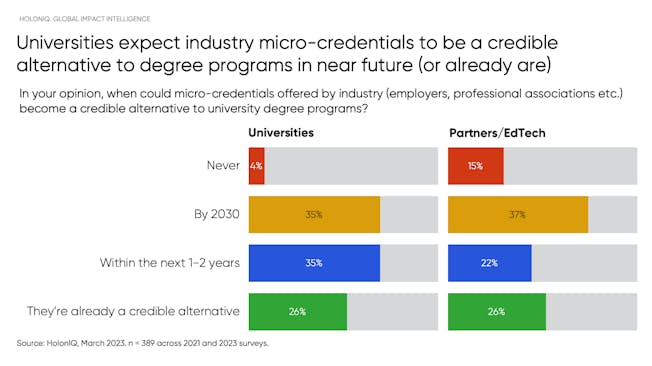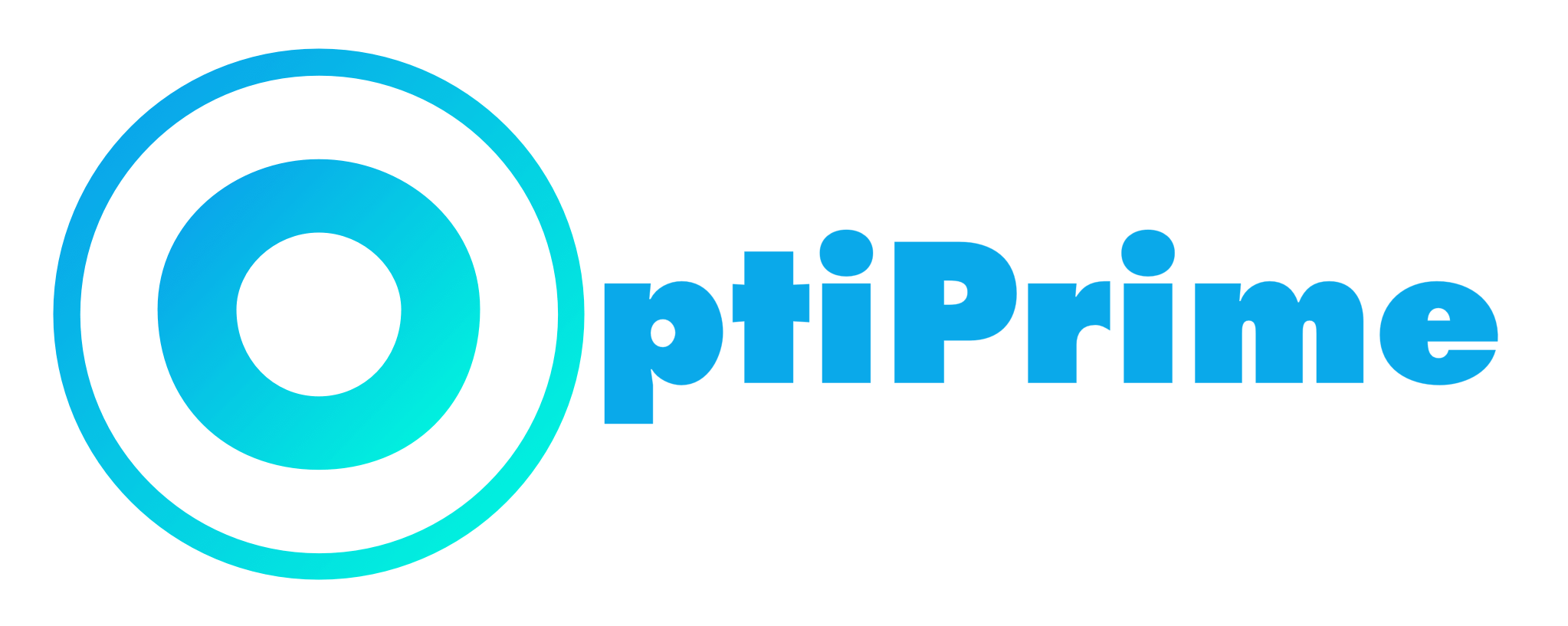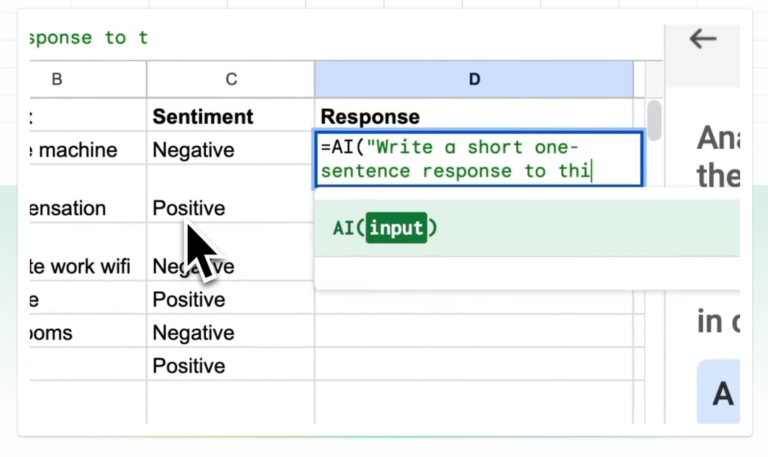Colleges and Universities: Five Strategies to Enhance Students’ Job Prospects in 2024
As the cost of living continues to rise, so too does the price tag on higher education. This has led to a noticeable decrease in student enrollment across degree programs, a situation often referred to as the ‘enrollment cliff’.
Additionally, a concerning trend has emerged where employers point out a significant skill gap among graduates in the modern, digital post-COVID world. A CMI report highlights that almost 80% of employers believe recent graduates lack the necessary skills for immediate productivity in the workplace.
On the contrary, research by Cengage reveals that nearly half (49%) of graduates feel unqualified for entry-level positions, preventing them from applying.
Despite these challenges, the higher education sector has opportunities for revitalization. Success hinges on bridging the gap between academic learning and the practical skills employers demand, thereby enhancing student employability and, consequently, the value of educational offerings.
This article, inspired by insights from a recent webinar, outlines five strategic approaches to enhance student employability, thereby increasing enrollment numbers and boosting institutional reputation.
1) Embrace Work-Integrated & Practical Learning Approaches
While internships are a staple in many degree programs, the integration of work-based learning is still insufficient in numerous institutions. Providing students with real-life company experiences serves as a unique selling proposition for universities and colleges, something students eagerly seek.
The American Marketing Association stands out by incorporating simulations and experiential learning programs into its offerings, which include events like its annual International Collegiate Conference.
“The power of simulations lies in their ability to immerse students into the practical aspects of their future jobs. Moving beyond textbooks to hands-on experience is essential in today’s educational landscape,” notes Molly Soat, the VP of Professional Development at the American Marketing Association.
Engaging students in competitions and real-world projects, such as using CRM systems and content creation tools like Canva, further adds to their practical learning experiences.
2) Guide Students on Leveraging Digital Platforms
Teaching students how to effectively use and present themselves on digital platforms like LinkedIn and Indeed is crucial for networking and job searching in today’s digital age. Students must learn not just to participate but also to strategically position themselves on these platforms to attract prospective employers.
“I advise students to adopt an SEO mindset when crafting their LinkedIn profiles. Analyze job descriptions in your desired field and incorporate similar language into your profile,” suggests Stephen Marshall, CMO of ETSU Research Corporate, East Tennessee State University.
Marshall also recommends proactive networking by reaching out to professionals in desired fields, joining relevant LinkedIn groups, and following target companies to stay abreast of industry trends.
On Indeed, the strategic use of action verbs and keywords can enhance a student’s visibility in job searches. It’s also beneficial for them to understand the importance of having an updated and keyword-optimized resume uploaded on job platforms.
3) Incorporate Industry Certifications into Curricula
In light of a skills gap noted by employers, educational institutions are increasingly aligning their programs with industry demands by incorporating microcredentials and industry certifications into their offerings. With the micro-credential market projected to grow significantly, these certifications offer students valuable credentials that are highly regarded in the job market.
Microcredentials not only update and enhance curricula but also establish a connection between educational institutions and recognized industry bodies, adding credibility and value to educational programs.
“By collaborating with reputable external organizations to bring industry-specific certifications into our curricula, we demonstrate our commitment to providing students with relevant and actionable skills,” Marshall articulates the benefits of such partnerships.
Industry micro-credentials are increasingly viewed as a credible complement or alternative to traditional degree programs, with a significant portion of universities recognizing their potential within the next few years.

The integration of micro-credentials into degree programs represents a progressive trend in higher education, offering students not only academic knowledge but also practical skills highly sought after by employers.
The American Marketing Association, in collaboration with DMI, exemplifies this approach by integrating industry-recognized microcredentials into their academic programs, thereby enhancing the career prospects of their graduates.
“We’re delighted to extend our offerings to universities, providing students with microcredentials that significantly boost their employability. This blend of academic rigor and practical skills prepares students comprehensively for the job market,” shares Soat.
Discover more about the AMA & DMI microcredential partnership and how it benefits students by enhancing their employability and readiness for the professional world.
“75% of employers say they are more likely to hire candidates with a DMI certification on their resume”
DMI Corporate Skills Gap and Training Survey, 2023
4) Foster Development of Key Soft Skills
In the ever-changing job market, soft skills such as adaptability, communication, and leadership are increasingly valuable to employers. With hard skills constantly evolving, the ability to adapt and think critically is paramount.
According to Adobe’s findings, these soft skills rank among the highest in demand by businesses today. Developing these skills requires a hands-on approach to learning that encourages students to engage actively and learn from experiences beyond traditional lectures.
“Soft skills emerge when students are engaged in practical learning experiences, allowing them to test theories in real-world scenarios,” highlights Marshall.
Educators play a pivotal role in ensuring students have opportunities to develop these essential skills, whether through experiential learning, community projects, or competition participation.
5) Maintain a Relevant and Industry-Aligned Curriculum
It’s vital for educational institutions to stay aligned with industry needs to prepare students effectively for the workforce. This means staying informed about the latest trends, technologies, and skills demanded by employers.
Teachers are encouraged to evaluate and update their curricula to fill any gaps and ensure the content is not only current but also relevant to students’ future careers. Incorporating new technologies, like ChatGPT, and real-world applications into the curriculum can significantly enhance students’ readiness for the job market.
“Adapting our teaching to include emerging technologies and methodologies ensures our students gain the experiences they need to be successful,” states Marshall.
Engaging with industry professionals and incorporating their input into the curriculum can also provide insights into the skills and knowledge students need to become work-ready graduates.
By partnering with recognized organizations like the American Marketing Association and Digital Marketing Institute, educators can offer certifications that equip students with in-demand digital marketing skills, enriching their learning experience and improving their employability.
Enhance Your Digital Marketing Educational Offerings
Learn how incorporating a DMI certification or a dual certification with DMI and the American Marketing Association (AMA) into your degree programs can benefit your students. Discover more through the DMI University Partnership Program.
Related
OptiPrime – Global leading total performance marketing “mate” to drive businesses growth effectively. Elevate your business with our tailored digital marketing services. We blend innovative strategies and cutting-edge technology to target your audience effectively and drive impactful results. Our data-driven approach optimizes campaigns for maximum ROI.
Spanning across continents, OptiPrime’s footprint extends from the historic streets of Quebec, Canada to the dynamic heartbeat of Melbourne, Australia; from the innovative spirit of Aarhus, Denmark to the pulsating energy of Ho Chi Minh City, Vietnam. Whether boosting brand awareness or increasing sales, we’re here to guide your digital success. Begin your journey to new heights with us!







